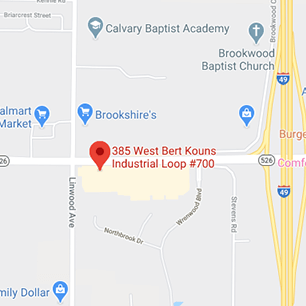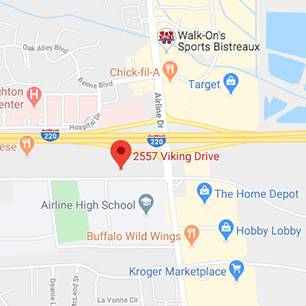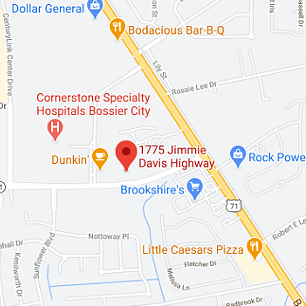DENTISTRY FAQ'S
What should I do if my temporary OR permanent crown or bridge has come off?
Purchase temporary cement or fixodent to place back on until you are able to schedule an appointment during normal business hours.
What should I do if my crown or bridge has broken?
Avoid any chewing on that tooth and call our office during normal business hours to schedule an evaluation. We can typically see you the same day! Take over-the-counter medication as needed.
My teeth hurt or are sensitive after whitening treatment. What should I do?
Use your whitening treatment less frequently and shorten the duration. You can use Sensodyne toothpaste or a fluoride mouthwash before whitening and take over-the-counter pain medication.
What should I do if I am in pain or having discomfort after a deep cleaning?
Rinse with warm salt water and take over-the-counter pain medication.
What should I do if my tooth is loose?
Avoid any chewing on that tooth and call our office during normal business hours to schedule an evaluation. We can typically see you the same day!
I just had a filling, crown, bridge, or root canal completed and it hurts. Is this normal?
If you are experiencing pain while chewing, call our office during normal business hours. We will evaluate and remedy any issues. Over-the-counter pain medication is recommended for discomfort.
If you are experiencing hot or cold sensitivity or it is constantly hurting, please call our after-hours line at (318) 465-4042.
I had an extraction done and I see something poking out of my gums or I'm finding pieces of tooth leftover. Is this normal?
Yes, this is normal. Bone spurs happen when the bone is reshaping. Normally, it will work its way out naturally or you can call our office during normal business hours to be scheduled for bone removal.
I had an extraction, and it won't stop bleeding. Is this normal?
Yes, keep the gauze and cotton in place until the extraction site stops bleeding. You can also place a damp tea bag in the area to help.
What should I do if my tooth has been knocked out?
If it is after normal business hours and you are in pain, please visit your nearest emergency room. If you are not in pain, call our office during regular business hours to schedule an evaluation.
What should I do if my denture or parital is causing a sore spot(s) on my gums?
Take a break from wearing your denture/partial and call our office during normal business hours to schedule an adjustment.
If you had a full-mouth extraction and received your denture the same day, we recommend wearing your denture for at least 24 hours after your visit without removing it to help with clotting.
What over-the-counter medication do you recommend for pain? How often and how much can be taken?
Ibuprofen, Aleve, Tylenol, Motrin, and oral topicals are recommend to be used as directed on the packaging.
ORTHODONTIC FAQ'S
What should I do if my bracket is loose or comes off?
Call our office during regular business hours to schedule an orthodontic appointment.
A wire is causing discomfort. What should I do?
Place wax over the area and call our office during normal business hours to schedule for an orthodontic appointment. Orthodontic wax is available over-the-counter. If you don't have any wax, you can clip the wire using nail clippers.
If you are experiencing a dental issue that is not addressed above, please call our after hours line at (318)465-4042.
GENERAL FAQ'S
What is dentistry?
Dentistry is the diagnosis, treatment, and prevention of conditions, disorders, and diseases of the teeth, gums, mouth, and jaw. Often regarded as necessary for complete oral health, dental care can have an impact on the health of your entire body.
What is a dentist?
A dentist is a specialist who works to diagnose, treat, and prevent oral health problems. All of our doctors completed at least eight years of schooling to obtain their Doctorates of Dental Surgery.
If a doctor is a pediatric dentist, this means that he or she specializes in caring for children from infancy through their teen years. A pediatric dentist has received the proper education and training needed to work with young kids. Other specializations include:
- Endodontics (root canals)
- Oral and maxillofacial (including pathology, radiology, and surgery)
- Orthodontics and dentofacial orthopedics
- Periodontics (gum disease)
- Prosthodontics (implants)
Why is visiting the dentist so important?
Visiting our office regularly will not only help keep your teeth and mouth healthy, but will also help keep the rest of your body healthy. Dental care is important because it:
- Helps prevent tooth decay
- Protects against periodontal (gum) disease, which can lead to tooth and bone loss
- Prevents bad breath; brushing, flossing, and seeing us regularly will help reduce the amount of bacteria in your mouth that causes bad breath
- Gives you a more attractive smile and increases your self-confidence
- Helps keep teeth looking bright by preventing them from becoming stained by food, drinks, and tobacco
- Strengthens your teeth so you can enjoy healthy, beautiful smiles for the rest of your life!
My teeth feel fine; do I still need to see a dentist?
Your teeth may feel fine, but it’s still important to see a dentist regularly because problems can exist without your knowing. Your smile’s appearance is important, and we can help keep it healthy and looking beautiful.
With so many advances in dentistry, you no longer have to settle for stained, chipped, missing, or misshapen teeth. Today’s dentists offer many treatment choices that can help you smile with confidence, including:
- Professional teeth whitening
- Fillings that mimic the appearance of natural teeth
- Tooth replacement and full smile makeovers
What should I look for when choosing the right dentist for me?
Choosing a dentist who “clicks” with you and your family is essential, and you may wish to consider several dentists before making your final decision. During your first visit, you should be able to determine whether the dentist is right for you. During your appointment, consider the following:
- Is the appointment schedule convenient?
- Is the office easy to get to and close by?
- Does the office appear to be clean and orderly?
- Was your medical and dental history recorded and placed in a permanent file?
- Does the dentist explain techniques for good oral health?
- Is information about cost presented to you before treatment is scheduled?
- Is your dentist a member of the ADA (American Dental Association)?
How can I take care of my teeth between dental checkups?
- ALWAYS remember to brush your teeth at least two times a day, and floss at least once!
- Make sure to use toothpaste that contains fluoride, and ask one of our doctors if you need a fluoride rinse. This will help prevent cavities.
- Avoid foods with a lot of sugar (which increases the amount of bacteria that grows in your mouth and can cause more plaque and potential cavities), and avoid tobacco (which can stain your teeth, cause gum disease, and eventually lead to oral cancer).
- Don’t be afraid to brush your tongue! This will remove food particles and reduce the amount of plaque-causing bacteria. Tongue brushing also helps keep your breath fresh.
- Be sure to schedule your routine checkup. It is recommended that you visit the dentist every six months.
At what age should I start taking my child to see the dentist?
The American Academy of Pediatric Dentistry recommends that children first see a dentist as early as six months of age and no later than one year. During this time, your son or daughter’s baby teeth will be coming in and we can monitor the health of those first few teeth. After the first visit, be sure to schedule regular checkups every six months.
How often should I see the dentist?
Children, teens, and adults should all see us for a regular checkup at least once every six months. Patients who are at a greater risk for oral cancer or gum disease may be required to come in more than just twice a year. Your doctor will help determine how often you should visit our office for regular checkups.
What is a cavity?
A cavity is a small hole that forms inside the tooth because of tooth decay. Cavities form when plaque buildup on the outside of the tooth combines with sugars and starches in the food you eat. This produces an acid that can eat away the enamel on your tooth.
If a cavity is left untreated, it can lead to more serious oral health problems. Cavities can be prevented by remembering to brush your teeth at least two times a day and floss between teeth at least once.
What is a filling?
A filling is a synthetic material that a dentist uses to fill a cavity after all the tooth decay has been removed. Fillings do not generally hurt, because we will numb your mouth with an anesthetic.
Fillings are made from a variety of different materials, including composites, gold, or ceramic. If you need a filling, be sure to talk to your doctor about what type is best for you and your teeth.
How often should I brush my teeth?
According to our dentists and the American Dental Association, you should brush your teeth at least two times a day. Brushing keeps your teeth, gums, and mouth clean and healthy by removing bacteria-causing plaque.
It is also recommended that you use a soft-bristled toothbrush and toothpaste that contains fluoride when you brush your teeth. You should spend at least a minute on the top teeth and a minute on the bottom, and remember to brush your tongue; it will help keep your breath smelling fresh!
When should I change my toothbrush?
Your toothbrush will eventually wear out, especially if you are brushing your teeth twice a day for two to three minutes each time. We recommend that adults and children change their toothbrush every three months. If you are using an electric toothbrush, be sure to read the directions because you may not need to change toothbrush heads as frequently.
Patients with gum disease are encouraged to change their toothbrush every four to six weeks to keep bacteria from spreading. After brushing, rinse your toothbrush with hot water to kill germs and keep the bristles clean. If you’ve been sick, be sure to change your toothbrush as soon as possible.
What is gum disease?
Also known as periodontal disease, gum disease is mostly caused by plaque and bacteria buildup that is not treated in its early stage. Other causes of periodontal disease include tobacco use, teeth grinding, some medications, and genetics.
Gingivitis is the beginning stage of gum disease. If detected, it is treatable. Gingivitis left untreated may turn into gum disease. Advanced gum disease will lead to tooth and bone loss, and is a permanent condition.
Brushing your teeth regularly and visiting one of our offices every six months will help prevent gingivitis and more severe cases of periodontal disease. Common signs of gum disease:
- Red, irritated, bleeding, or swollen gums
- Chronic bad breath
- Loose teeth, or loss of teeth
- Extreme tooth sensitivity
- Receding gum line
- Abscessed teeth
If I have braces, do I still need dental checkups every six months?
Yes! In fact, it’s even more important that patients receiving orthodontic treatment visit us regularly. With braces, food may be caught in places your toothbrush can’t reach. This causes bacteria to build up and can lead to cavities, gingivitis, and gum disease. Our team will work closely with your orthodontist to make sure your teeth stay clean and healthy while you’re wearing braces.
How do I schedule my next checkup?
Simply call our practice! Our front desk staff will be happy to schedule your next dental checkup at your convenience. If you are a new patient, please let us know and we will provide you with all the information you need for your first dental visit.





